 Although many media players offer the facility to burn MP3 music tracks, the job is often made unnecessarily complex by fiddly menus or hard to find options.
Although many media players offer the facility to burn MP3 music tracks, the job is often made unnecessarily complex by fiddly menus or hard to find options.
A compact 2.3MB download, the freeware CD Ripper looks to simplify the process of converting music CDs into MP3 tracks.
Although the interface isn’t the most intuitive we’ve ever some across, there’s some real power lurking underneath the no-nonsense program.
Running along the top of the program are a set of CD player controls underneath the usual drop down menus giving access to various settings and preferences.
 The configuration tab lets you can customise output file name formats, add files to playlists (PLS or MPU), change output file directories, choose your CD-ROM source drive, change the rip offsets and turn jitter correction on/off.
The configuration tab lets you can customise output file name formats, add files to playlists (PLS or MPU), change output file directories, choose your CD-ROM source drive, change the rip offsets and turn jitter correction on/off.
Under the encoder tab, you can set your preferred encoder, select the encoding bitrate, and set the mode to Stereo, Joint Stereo, Forced Stereo or Mono, with encoder options including Yamaha VQ, Microsoft WMA, Ogg Vorbis and a host of others we’d never heard of.
The main window is used to list the tracks to be burnt, with a set of icons running vertically along the right hand side of the program offering CD to WAV, CD to MPEG, Partial CD track to MPEG, WAV to MPEG and MPEG to WAV conversion options.
It has to be said that these icons aren’t the easiest to understand but at least hovering your mouse over them produces an explanatory text pop up.
Burn it up
Using CDex at the default settings is dead simple – shove a CD into your PC, load up CDex, select the tracks you want converted to MP3s, click on the “Extract CD Tracks To Compressed Audio files” button and sit back and let it do its stuff. Job done!
For those who like to have a little more control over the process, things can get a tad more complicated, with some of the menu options being a little vague.
For example, if you want to download individual track information for your CD tracks, you have to click on the ‘remote CDDB’ button (last but one button on the right hand menu) and so long as you’re connected to the internet, it’ll try and find the data from the freedb server.
 It’s a shame that the program makes no attempt to tell people what the chuffin’ heck ‘CDDB’ means (it stands for ‘CD Data Base’ ), and it took us a while to figure out how to set CDex up to automatically download the information (Options > Settings > Remote CDDB, select “Auto connect to remote CDDB” and include an email address).
It’s a shame that the program makes no attempt to tell people what the chuffin’ heck ‘CDDB’ means (it stands for ‘CD Data Base’ ), and it took us a while to figure out how to set CDex up to automatically download the information (Options > Settings > Remote CDDB, select “Auto connect to remote CDDB” and include an email address).
You can also record sound files using your sound card via the Tools / Record Files menu, specifying where you want MP3 files stored on your PC, with a host of options letting you set folder naming conventions.
Conclusion
CDex is a simple, no-frills program for converting CDs to mp3s and vice versa, and it does the job with the minimum of fuss.
For users who just want to convert their CDs to MP3s without wading knee deep in menu options, it’s a great tool, and power users will appreciate the hands-on control that’s available in the advanced preferences.
However, complete newbies looking for big cartoon-like graphics and hand-holding wizards may find this program a little too fiddly for their tastes.
Despite its foibles, it’s long been our first choice for converting CDs to MP3 files – after all, it’s small, fast, simple and – best of all – it’s free! Why not give it a go too?
Features: 80%
Ease of use: 70%
Value For Money: 90%
Overall: 80%
CDexr
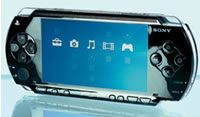 The pricing of PSone games to be played on the Sony PSP have been announced.
The pricing of PSone games to be played on the Sony PSP have been announced.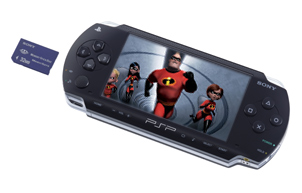 It was initially envisaged that Sony would give access to the Playstation Store through the PSP using its WiFi connection. We can see one advantage of not doing this – people wanting to use the service will need to buy a PS3!
It was initially envisaged that Sony would give access to the Playstation Store through the PSP using its WiFi connection. We can see one advantage of not doing this – people wanting to use the service will need to buy a PS3!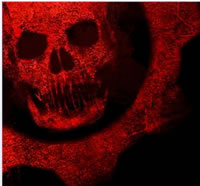 We see that Engadget are offering a charity auction for Save Dafur.
We see that Engadget are offering a charity auction for Save Dafur.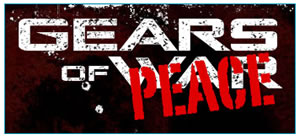 Ever self-aware, Engadget also point out they understand the irony of raising money for a Dafur charity, by playing a video game called Gears of War. Their defence is that their readers chose the charity and that they’d already decided what the event was going to be. As some step towards balancing this, Engadget have named the event Gears of Peace.
Ever self-aware, Engadget also point out they understand the irony of raising money for a Dafur charity, by playing a video game called Gears of War. Their defence is that their readers chose the charity and that they’d already decided what the event was going to be. As some step towards balancing this, Engadget have named the event Gears of Peace.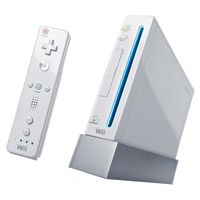 Nintendo’s eagerly awaited
Nintendo’s eagerly awaited 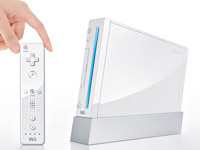 The first punter to get his hands on the shiny new console was the time-rich Isaiah Triforce Johnson, who had sat outside a New York store for more than a week.
The first punter to get his hands on the shiny new console was the time-rich Isaiah Triforce Johnson, who had sat outside a New York store for more than a week.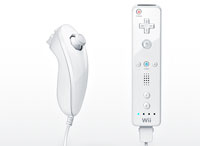 Sony had shipped 400,000 PlayStation 3s in North American stores at the end of last week, but Nintendo boasted that it would have “five to ten” times as many Wiis available at launch, with an end-of-year shipping figure of 4 million units expected.
Sony had shipped 400,000 PlayStation 3s in North American stores at the end of last week, but Nintendo boasted that it would have “five to ten” times as many Wiis available at launch, with an end-of-year shipping figure of 4 million units expected.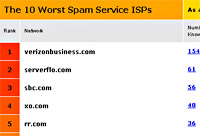 Just over nine out of every 10 e-mails sent worldwide are junk, with a “spam tsunami” flooding inboxes with relentless junk advertising.
Just over nine out of every 10 e-mails sent worldwide are junk, with a “spam tsunami” flooding inboxes with relentless junk advertising.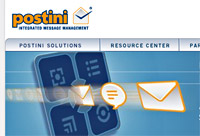 Because each hijacked PC only sends out a relatively small amount of spam, they’re not detected by anti-spam networks and thus avoid being blacklisted on industry spamlists.
Because each hijacked PC only sends out a relatively small amount of spam, they’re not detected by anti-spam networks and thus avoid being blacklisted on industry spamlists.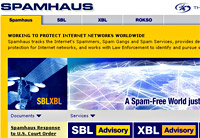 Spamhaus blames much of the problem on ISP’s who either fail to stop the spammers or do nothing to stop them through mismanagement or good old fashioned corporate greed.
Spamhaus blames much of the problem on ISP’s who either fail to stop the spammers or do nothing to stop them through mismanagement or good old fashioned corporate greed.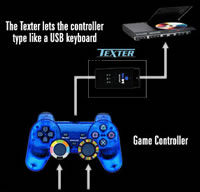 To defeat the pain of trying to enter text using an on-screen keyboard using your gaming controller to peck out a letter at a time, Blue Orb have released Texter, a small device that sits between the game controller and the game box. Using some general cleverness, the box will appear as a USB keyboard.
To defeat the pain of trying to enter text using an on-screen keyboard using your gaming controller to peck out a letter at a time, Blue Orb have released Texter, a small device that sits between the game controller and the game box. Using some general cleverness, the box will appear as a USB keyboard.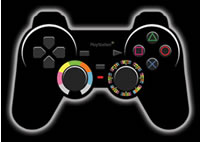 We’ve not tried it yet, but looking at the usage diagrams it initially looks a little complex. That’s not to say that using it wouldn’t become easier after some practice. We’ve had a lot of experience in having to use different ways of putting text in, normally by having to review so many different mobile phones. Once you get past the initial pain of using the new method, some of them can be pretty fast.
We’ve not tried it yet, but looking at the usage diagrams it initially looks a little complex. That’s not to say that using it wouldn’t become easier after some practice. We’ve had a lot of experience in having to use different ways of putting text in, normally by having to review so many different mobile phones. Once you get past the initial pain of using the new method, some of them can be pretty fast.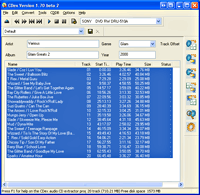 Although many media players offer the facility to burn MP3 music tracks, the job is often made unnecessarily complex by fiddly menus or hard to find options.
Although many media players offer the facility to burn MP3 music tracks, the job is often made unnecessarily complex by fiddly menus or hard to find options.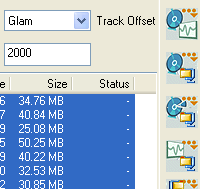 The configuration tab lets you can customise output file name formats, add files to playlists (PLS or MPU), change output file directories, choose your CD-ROM source drive, change the rip offsets and turn jitter correction on/off.
The configuration tab lets you can customise output file name formats, add files to playlists (PLS or MPU), change output file directories, choose your CD-ROM source drive, change the rip offsets and turn jitter correction on/off.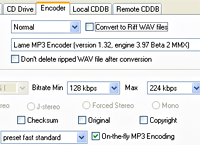 It’s a shame that the program makes no attempt to tell people what the chuffin’ heck ‘CDDB’ means (it stands for ‘CD Data Base’ ), and it took us a while to figure out how to set CDex up to automatically download the information (Options > Settings > Remote CDDB, select “Auto connect to remote CDDB” and include an email address).
It’s a shame that the program makes no attempt to tell people what the chuffin’ heck ‘CDDB’ means (it stands for ‘CD Data Base’ ), and it took us a while to figure out how to set CDex up to automatically download the information (Options > Settings > Remote CDDB, select “Auto connect to remote CDDB” and include an email address).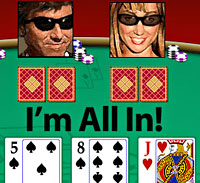 If you fancy yourself as a bit of a Cool Hand Luke kind of character when it comes to gambling, then Texas Hold’Em No Limit poker is a great way to practice your skills when you’re on the move.
If you fancy yourself as a bit of a Cool Hand Luke kind of character when it comes to gambling, then Texas Hold’Em No Limit poker is a great way to practice your skills when you’re on the move.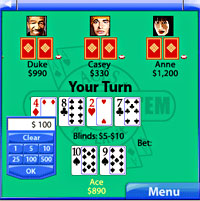 Interface
Interface For the asking price of $20, this a great little game for passing away spare hours on the train (or perhaps wasting time at the office) and for poker fans it could prove a nifty way to hone your bluffing skills.
For the asking price of $20, this a great little game for passing away spare hours on the train (or perhaps wasting time at the office) and for poker fans it could prove a nifty way to hone your bluffing skills.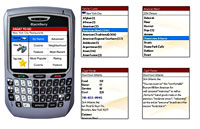 Handmark have released the latest version of their consumer survey-based dining, travel and leisure information program, Zagat To Go v5.0.
Handmark have released the latest version of their consumer survey-based dining, travel and leisure information program, Zagat To Go v5.0.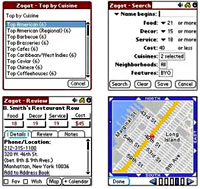 The program now carries survey rankings for over 25,000 restaurants and nightspots in 70+ cities, with automatic free content updates.
The program now carries survey rankings for over 25,000 restaurants and nightspots in 70+ cities, with automatic free content updates.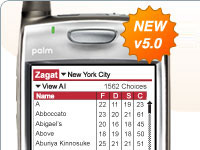 Zagat To Go v5.0 is available for the Palm OS, BlackBerry, motorola Q and other Windows Mobile Pocket PCs and Smartphone platforms and comes as free upgrade for existing customers forking out the $29.95 yearly subscription fee.
Zagat To Go v5.0 is available for the Palm OS, BlackBerry, motorola Q and other Windows Mobile Pocket PCs and Smartphone platforms and comes as free upgrade for existing customers forking out the $29.95 yearly subscription fee. Now, we understand that when you agree to install a beta product, you can expect a few glitches.
Now, we understand that when you agree to install a beta product, you can expect a few glitches. Immediately, we were plagued with time outs, and that ruddy annoying animated exclamation mark icon that appears when Blogger’s uploading became a near permanent fixture on our screen.
Immediately, we were plagued with time outs, and that ruddy annoying animated exclamation mark icon that appears when Blogger’s uploading became a near permanent fixture on our screen. Google’s perpetual betas
Google’s perpetual betas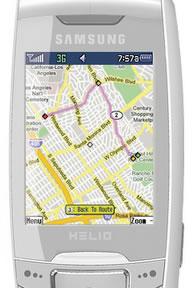 Google Maps for Mobile now officially supports GPS location information when used with mobile phones … well at least one of them at the moment, the Helio Drift.
Google Maps for Mobile now officially supports GPS location information when used with mobile phones … well at least one of them at the moment, the Helio Drift.